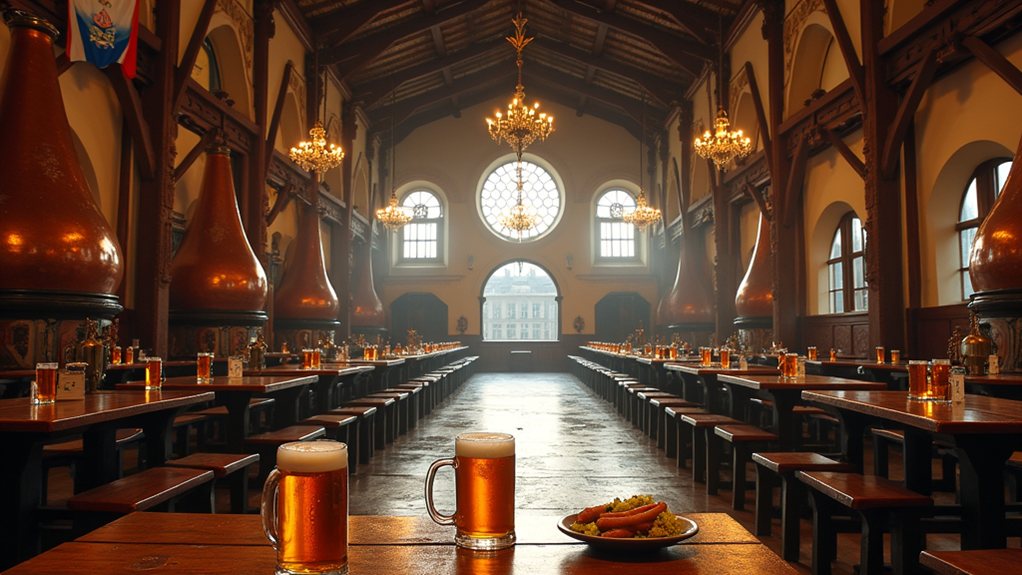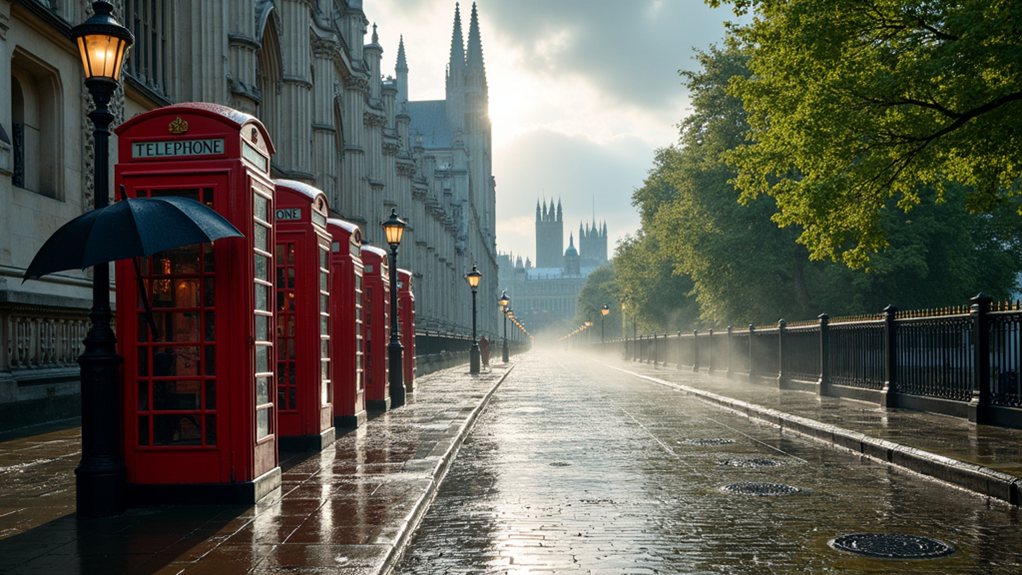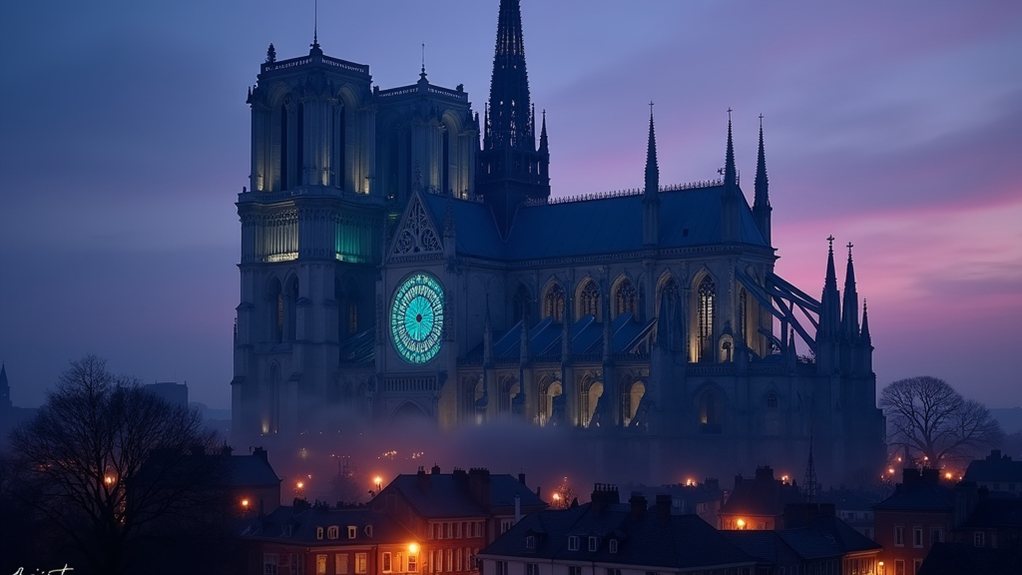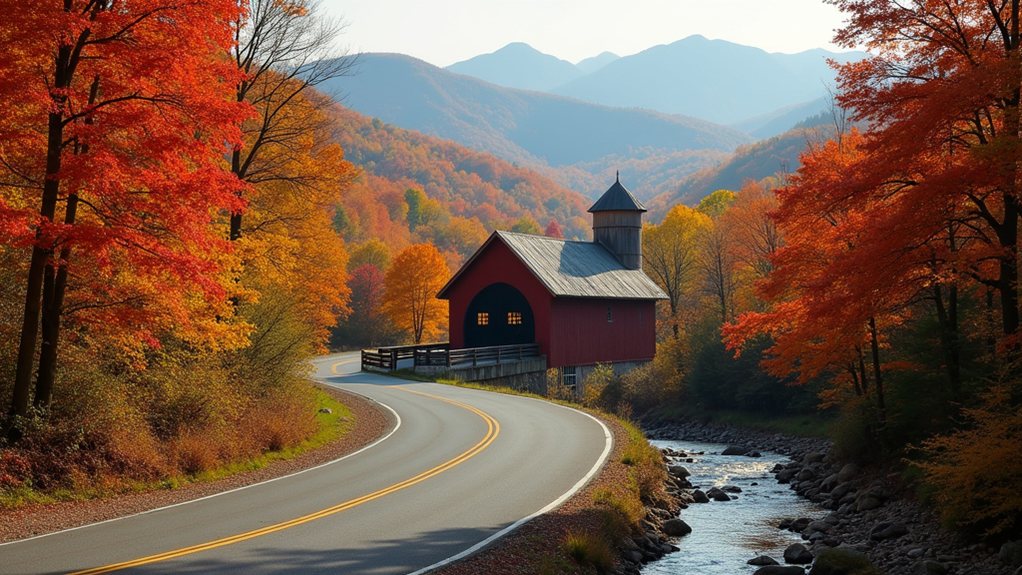Like a timeworn leather lederhosen, Munich’s Hofbräuhaus has been shaped by centuries of use, its creases and patina telling stories of Bavarian life since 1589. Locals call it “die Schwemme,” or the tap room, where they’ve clinked steins alongside kings, artists, and activists through five centuries of cultural evolution. While tourists snap photos beneath its vaulted ceilings, they’re actually participating in Germany’s most authentic expression of “Gemütlichkeit”—that untranslatable feeling of warmth and belonging that defines Bavarian hospitality. But what makes this supposed tourist trap so genuinely German?
Bavaria’s Beer Temple: History in Every Stein
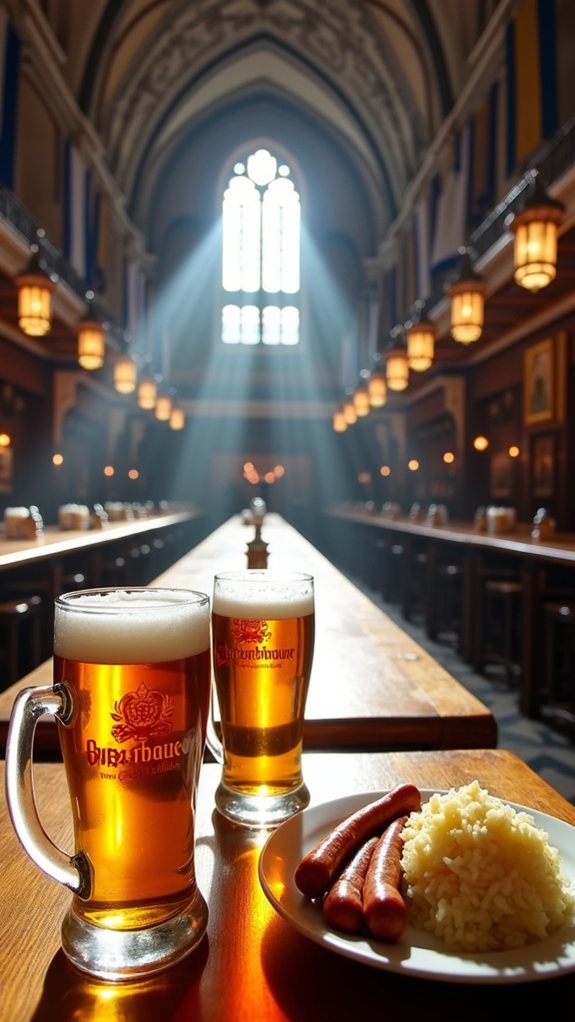
When the heavy wooden doors of Munich’s Hofbräuhaus swing open, visitors step into a living piece of Bavarian history that has been serving beer enthusiasts since 1589. Founded by Duke Wilhelm V to supply the royal court with beer, this Renaissance revival-style establishment has evolved from royal brewery to beloved cultural institution, standing proudly near Marienplatz in the heart of Munich.
The Hofbräuhaus embodies Bavaria’s strict brewing traditions, adhering to the Reinheitsgebot—the 1516 purity law requiring beer to be made only with barley, hops, and water. Inside, the aroma of sauerkraut and roasting pork mingles with the distinctive scent of freshly tapped beer, while oompah bands fill the hall with traditional music that’s as much a part of the experience as the Hofbräu Original, Dunkel, or Weißbier in your stein.
Critics might dismiss it as a tourist trap, but locals know better. Nearly half the patrons are regulars who’ve been coming for years, sometimes decades. The Hofbräuhaus exemplifies how beer halls have been central to Munich’s identity for over 500 years, serving as both cultural landmarks and vibrant social spaces. Where else can you sit at the same tables that once hosted Mozart and Lenin, all while enjoying authentic bratwurst and crisp beer served in traditional one-liter maßkrugs?
The hall’s genius lies in its communal seating plan, where strangers become drinking companions across long wooden tables. This social atmosphere, punctuated by clinking glasses and hearty “Prost!” toasts, creates connections that transcend language barriers and cultural differences. Like its competitors Augustiner and Paulaner, Hofbräuhaus represents the city’s dedication to beer purity law that has shaped Bavarian brewing since 1516. Following Rick Steves’ philosophy of cultural immersion, the experience offers travelers a genuine glimpse into Bavarian life beyond superficial tourism.
While other beer halls like Augustiner-Keller and Löwenbräukeller offer their own charms, Hofbräuhaus maintains its position as Munich’s cultural cornerstone. Its public opening in 1828 by King Ludwig I transformed it from exclusive royal domain to people’s gathering place, cementing its place in Bavarian identity. The bustling crowds that fill the hall aren’t a drawback but rather enhance the authentic experience of traditional German beer culture.
Come summer, the adjacent beer garden offers respite from the indoor revelry, continuing centuries-old traditions under Bavaria’s blue skies. Whether during Oktoberfest or an ordinary Tuesday afternoon, the Hofbräuhaus remains what it’s always been—not a tourist attraction pretending to be authentic, but authenticity itself that happens to attract tourists.

